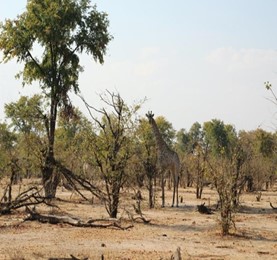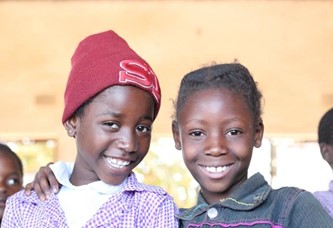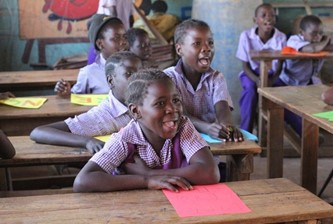ORPHANHOOD PLIGHT AND PROGRESS IN ZAMBIA
- Funsani
- Mar 15, 2021
- 5 min read
Updated: Mar 31, 2021
By Debbie, Funsani Volunteer
Having been orphaned at a young age, I have a profound desire to advocate for improved outcomes for vulnerable children and to give back to the community of orphaned children. I was excited when I came across Funsani last year and learned more about the charity, its mission, and the work it has done and continues to do for orphaned and vulnerable children in Zambia (my birth country). I was delighted when they accepted my offer to volunteer for the charity.
This article highlights Zambia as a nation of touristic adventure yet challenged by a crisis of child orphans. Despite these challenges, organisations such as Funsani do amazing work to support and provide a home for these children.
The spotlight of the article is the source of hope that Funsani is to the plight of orphaned children and the progress being made. To continue these efforts Funsani relies on the generosity of volunteers and donations to educate and support the children at Funsani Home.
CONTEXT
Zambia as a country can be equally enchanting as well as astounding.
Located neatly in south-central Africa, Zambia is a land-locked country surrounded by eight neighbouring countries. It has a total area of 752,618km2 which is just over 3 times larger than the UK. However, Zambia is far less densely populated, with only 18 million inhabitants compared to the UK’s 67 million.

©mylifeelsewhere:Size illustration of Zambia compared to United Kingdom
Zambia has a rich cultural diversity offering, with the country divided into nine provinces; North-Western, Western, Luapula, Copperbelt, Eastern, Southern, Northern, Central, and Lusaka. Each area has its unique cultural history, heritage, language, and traditions. There are plenty of adventures to be experienced – from the cosmopolitan city of Lusaka to the tranquil sunsets of the Zambezi river, the famous Mosi-O-Tunya falls in Livingstone, Kapishya hot springs in Copperbelt province, to wildlife and national parks across different parts of the country.
Left: A giraffe in a game park. Right: Mosi-O-Tunya Falls
THE ORPHAN CRISIS
However, underneath all the possibilities of such adventures lies a deepening crisis of childhood orphans. According to the Central Statistical Office of Zambia, children make up 53% (8.43million) of the population. This is a far higher proportion than the UK (21%) and almost the equivalent of London’s population (8.2million). It is estimated 1.2 million of these children are orphans, approximately 400 thousand as a result of HIV.
Zambia has high levels of poverty, with approximately 58.8% of the population living below the poverty line. Globally, Zambia ranks 123 of 167 on the Legartum prosperity index. The United Nations international children’s emergency fund (UNICEF) estimates that approximately 40.9% of these children suffer at least three or more deprivations, such as nutrition, education, sanitation, housing, water, and health access.
The effects of poverty can translate into reduced life expectancy, increased school drop -out rates and consequently literacy rates. The average life expectancy in Zambia is 54, in contrast to 81 in the UK. According to World Vision, it is estimated that 63% of the Zambian population lack literacy skills. This can contribute to a recurring cycle of poverty, HIV, lack of educational opportunities.
HIV IMPACT
Zambia’s share of HIV death incidence is 18%, in comparison to the UK’s share of 0.1%. Additionally, a survey by the Zambia Demographic and Health Survey (2018) reports that HIV prevalence among females aged 15-49 years is 14.2%, compared to 7.5% for males of the same age. The Copperbelt and Lusaka provinces have the greatest HIV burden, with a prevalence of 15.3% and 15.1% respectively. A high fertility rate combined with high levels of poverty and HIV can result in a high incidence of orphanhood.
Encouragingly, a 2019 survey by UNICEF showed a reduction in HIV incidence of 30% between 2010 and 2019. AIDS-related deaths decreased by 26% in the same period. However, the country still remains with a generation of children orphaned and impacted by the epidemic and the poverty it has led to.
There is a growing concern for the welfare and responsibility of these children. Many Zambians will know of someone directly (family, relatives, friends) infected or affected by HIV. With over half the population living in poverty, it can be very challenging to take on caring responsibilities to look after these already vulnerable children. Often, many end up in an orphanage or children’s home, some end up on the streets leaving them vulnerable to abuse and/or sex trafficking and some are looked after by relatives.
HOPE AT FUNSANI
Funsani’s foundation is grounded in first-hand experience of the devastating impact of HIV.
Despite this, for nearly 20 years Funsani Home has provided the children that have grown up there with a stable environment to learn, grow, and play. Although Funsani supports many other children in the community through our partnerships, the house is home to a limited number of children. This ensures there is consistent caregiving, encouragement, attention and counsel from the parent figures in the home. This family unit provides the children with a sense of belonging. Research studies have shown the benefits to children’s wellbeing that a sense of belonging creates, which is fundamental to the development of self-identity and can be a hallmark of the successful transition to adulthood.
To sustain an optimum development environment for these children Funsani relies on the support and financial contributions from donors like yourselves. Funsani is committed and dedicated to providing a nurturing home that supports their development and capacity to thrive.

© Funsani.com; Funsani is home to the above youngsters that have grown up there and has been a source of support over the years to approximately 100 children in the community of Kwacha and Chantete townships in Kitwe.
We invite you to join us in fulfilling our mission to provide a safe, caring environment to support the wellbeing and education of vulnerable children impacted by HIV and orphanhood in Zambia through Funsani Home and our partnership network.
Below are links to highlight the progress and projects at Funsani and how your support and donations are changing the lives of these amazing youngsters that continue to defy the barriers set upon them by orphanhood. Nurturing these children when they need it most narrows the disadvantage gap, improves trajectory outcomes, and develops adults capable of contributing to the development and stability of the population.

© Funsani.com; Children at Maanu Mbwami School, one of Funsani’s partnership network.
ABOUT THE AUTHOR

I am an aspiring Positive Psychology Practitioner in coaching and mentoring. I was born and raised in Zambia before emigrating to the United Kingdom. I was very fortunate by God’s grace to emigrate to the United Kingdom and as such never forget how privileged I am to be here. It is this constant reminder that generates the profound desire to advocate for improved outcomes for vulnerable children and to give back to the community of orphaned children.
It is a privilege to join Funsani as a volunteer and I look forward to working together to continue improving outcomes for vulnerable children. I was motivated to volunteer with Funsani because its ethos and principles resonate with some of my experiences.
My interests revolve around personal development and peoples’ capacity to thrive in spite of adversity. Most intriguingly are the prospective possibilities to cultivate practices that encourage and support flourishing and well-being.





